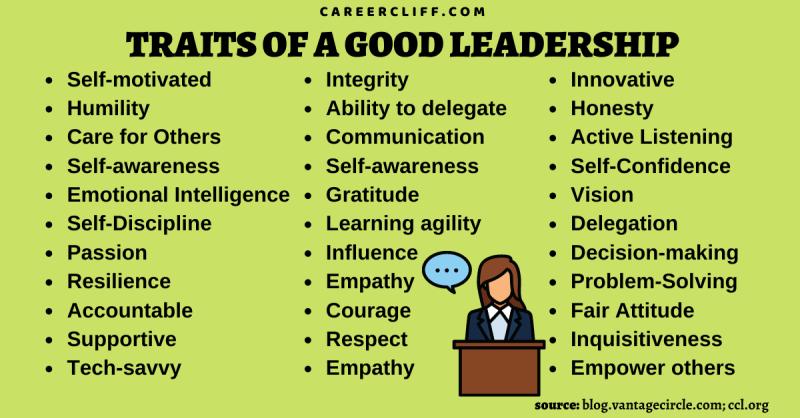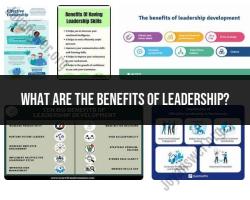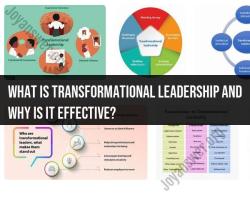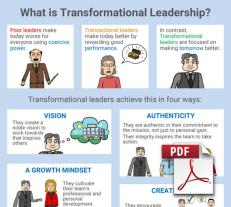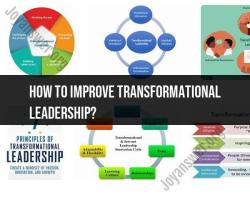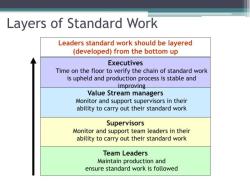What qualities should a successful leader have?
Successful leaders possess a diverse set of qualities and traits that enable them to inspire and guide individuals or teams toward achieving common goals. While leadership styles can vary, the following qualities are often associated with effective and successful leaders:
Vision: Successful leaders have a clear and compelling vision for the future. They can articulate this vision to their team and inspire others to work toward it.
Integrity: Integrity is a fundamental quality of a successful leader. They demonstrate honesty, ethics, and consistency in their actions and decisions, earning the trust of their team.
Empathy: Effective leaders understand the needs and feelings of their team members. They show empathy and are sensitive to the concerns and well-being of others.
Communication: Strong communication skills are essential. Leaders need to be able to convey their ideas, provide feedback, and actively listen to their team members.
Decisiveness: Leaders must be capable of making tough decisions, often under pressure. They weigh options, assess risks, and take action when necessary.
Adaptability: The ability to adapt to changing circumstances and be flexible in their approach is crucial for leaders. They can adjust their strategies as needed.
Accountability: Successful leaders take responsibility for their actions and the outcomes of their decisions. They hold themselves and their team accountable for their performance.
Confidence: Confidence is important in leadership, as it inspires trust and motivates others. However, it should be balanced with humility to avoid coming across as arrogant.
Resilience: Leaders often face challenges and setbacks. Resilience allows them to bounce back from adversity and continue to move forward.
Empowerment: Effective leaders empower their team members by providing opportunities, delegating responsibilities, and supporting individual growth and development.
Problem-Solving: Leaders are skilled problem solvers. They can analyze complex situations, identify solutions, and make informed decisions.
Team Building: Building and nurturing a cohesive and high-performing team is a hallmark of successful leaders. They create a positive and inclusive team culture.
Transparency: Transparency in decision-making and communication fosters trust and helps team members understand the reasoning behind actions and changes.
Inspirational: Successful leaders inspire and motivate their team by setting an example, demonstrating passion for their work, and promoting a shared sense of purpose.
Time Management: Leaders often have many responsibilities, so effective time management is essential to prioritize tasks and manage their workload efficiently.
Delegation: Leaders must be able to delegate tasks and responsibilities to team members based on their strengths and capabilities.
Conflict Resolution: Handling conflicts and disagreements constructively is a valuable skill for leaders. They facilitate resolutions and promote a positive working environment.
Strategic Thinking: Successful leaders have a strategic mindset. They can set long-term goals, plan for the future, and make decisions that align with their vision.
Authenticity: Authentic leaders are true to themselves and their values, which makes them relatable and genuine in their interactions.
Openness to Feedback: Leaders are open to receiving feedback from their team and are willing to learn and grow from it.
Keep in mind that leadership is a dynamic and evolving role, and the most effective leaders continue to develop and refine their qualities and skills over time. Leadership is not one-size-fits-all, and the specific qualities that are most important can vary depending on the context and the needs of the team or organization.
1. Essential Qualities and Traits of a Successful Leader
Effective leaders possess a combination of personal qualities and professional skills that enable them to inspire others, manage complex situations, and achieve organizational goals. Here are some essential qualities of a successful leader:
Vision and Strategic Thinking: Leaders should have a clear vision for the future of their organization and the ability to develop strategic plans to achieve that vision.
Communication and Interpersonal Skills: Effective leaders can communicate clearly and concisely, both verbally and in writing. They actively listen to others, build strong relationships, and create a positive and inclusive work environment.
Decision-Making and Problem-Solving Abilities: Leaders must make sound decisions under pressure and have the ability to analyze complex problems and develop effective solutions.
Motivation and Inspiration: Leaders can motivate and inspire others to work towards common goals. They create a sense of purpose and foster a culture of engagement and enthusiasm.
Adaptability and Flexibility: Leaders must be adaptable and flexible in their approach to leadership. They should be able to adjust their strategies and tactics to respond to changing circumstances.
Integrity and Ethical Conduct: Leaders should uphold high standards of integrity and ethical conduct. They should act with honesty, transparency, and accountability.
2. Effective Leadership and Organizational Growth
Effective leadership plays a crucial role in organizational growth and development. Here are some of the ways in which successful leaders contribute to organizational success:
Create a Shared Vision and Direction: Leaders articulate a clear and inspiring vision for the organization's future, aligning individual efforts towards a common goal.
Empower and Motivate Employees: Leaders empower their employees, giving them the authority and resources to make decisions and contribute to the organization's success. They foster a culture of motivation and engagement, encouraging employees to reach their full potential.
Build Strong Teams and Collaborate Effectively: Leaders create high-performing teams by identifying and utilizing individual strengths, fostering collaboration, and promoting a sense of teamwork.
Navigate Change and Adapt to Challenges: Leaders effectively manage change and adapt to new challenges, guiding the organization through difficult times and emerging stronger.
Inspire Innovation and Creativity: Leaders encourage innovation and creativity, creating an environment where new ideas are welcomed and valued.
3. Proven Leadership Styles in Different Contexts
There are various leadership styles that have been proven effective in different contexts. Here are some common leadership styles:
Transformational Leadership: Transformational leaders inspire and motivate others to achieve significant change and pursue ambitious goals.
Charismatic Leadership: Charismatic leaders possess a magnetic personality and inspire devotion and loyalty among their followers.
Democratic Leadership: Democratic leaders involve their team members in decision-making processes, fostering a sense of ownership and engagement.
Servant Leadership: Servant leaders prioritize the needs of their followers and aim to empower and support them.
Situational Leadership: Situational leaders adapt their leadership style to the specific needs of the situation and the individuals involved.
The effectiveness of a particular leadership style depends on various factors, including the organizational culture, the nature of the task, and the individual characteristics of the leader and their followers.
4. Developing and Improving Leadership Qualities
Individuals can develop and improve their leadership qualities through a combination of self-reflection, learning, and experience. Here are some ways to enhance leadership skills:
Self-Assessment and Reflection: Critically evaluate your strengths and areas for improvement as a leader. Seek feedback from others to gain a broader perspective.
Continuous Learning and Development: Engage in ongoing learning and development opportunities, such as attending workshops, reading books or articles on leadership, or taking online courses.
Practice and Experience: Seek opportunities to practice leadership skills in various settings, such as volunteering, taking on leadership roles in organizations or projects, or participating in mentorship programs.
Seek Feedback and Mentorship: Seek feedback from trusted colleagues or mentors to identify areas for improvement and gain valuable insights.
Emulate Effective Leaders: Observe and learn from successful leaders, studying their leadership styles, decision-making processes, and communication techniques.
5. Real-Life Examples of Successful Leaders
History is filled with examples of successful leaders who have made a significant impact on their organizations or societies. Here are a few notable examples:
Nelson Mandela: A global icon of peace, justice, and reconciliation, Nelson Mandela led South Africa's transition from apartheid to a democratic nation.
Indira Gandhi: The first female Prime Minister of India, Indira Gandhi was a powerful and influential leader who championed social justice and economic development.
Martin Luther King Jr.: A civil rights leader and Nobel Peace Prize laureate, Martin Luther King Jr. advocated for racial equality and inspired millions with his nonviolent approach to social change.
Steve Jobs: The co-founder of Apple Inc., Steve Jobs was a visionary leader who revolutionized the technology industry and
